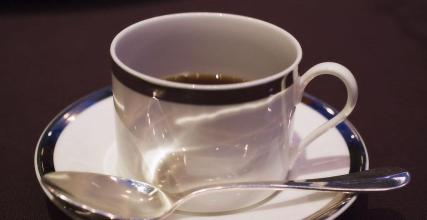Description of the characteristics and Flavor of Sun Lion King Coffee beans introduction to the varieties in the manor area
Description of the characteristics and Flavor of Sun Lion King Coffee beans introduction to the varieties in the manor area
Beautiful and complete bean shape, is the general mocha incomparable high-grade coffee. It has unique fruit aromas of citrus and lemon, with aromas of jasmine, sour taste similar to wine, clean and unmixed taste, just like freshly boiled citrus fruit tea with a long finish. Full of floral and citrus aroma, the performance is exciting, moderate roasting has a soft sour taste, deep roasting gives off a strong aroma, rich and uniform taste is the most attractive feature of Ethiopian Yega snow coffee, known as the best coffee beans in Ethiopia, is the representative of East African boutique coffee, and Yega snow coffee is the most unique coffee in the world today.
Located in the most advantaged natural conditions, Ethiopia produces unique high-quality coffee every year. Ethiopia's coffee growing cycle brings the joy of harvest to the country every year. Beautiful white coffee flowers will bloom and bear fruit every year from March to April. Only the reddest and ripe fruits are selected as coffee ingredients between September and about December. The export of new coffee accounts for about 35% of the country's total coffee production in villages that have grown coffee on a large scale since November or December. These coffee farms, which use a multi-tier coffee planting system, are carefully cared for. Coffee farmers do not use chemical fertilizers, but use fallen leaves and animal and plant debris to increase soil nutrition. In addition to coffee, farmers also frequently grow non-coffee crops. The price of coffee has rebounded since 2002, from 41 cents per pound in September 2001 to 52 cents per pound in 2002, and to 59.7 cents per pound in 2003. The average price in March 2004 was 60.8 cents per pound, an increase of 50% over September 2001. This is great news for Ethiopia, where coffee grading and quality control systems are divided into three levels: producer, regional and national. All coffee is inspected by local inspection agencies before leaving the country of origin, and then re-tested at the coffee inspection and grading centers in Addis and Diredawa to determine its quality grade. Coffee is graded before auction and sale and is important for all groups involved in production, acquisition, export and consumption. Before export, coffee must also be sent to a national quality control agency for inspection to confirm that the origin and color meet the export standards to ensure the reputation of Ethiopian coffee.

Important Notice :
前街咖啡 FrontStreet Coffee has moved to new addredd:
FrontStreet Coffee Address: 315,Donghua East Road,GuangZhou
Tel:020 38364473
- Prev

The standard espresso cup has a capacity of multiple milliliters.
The standard espresso cup is a multi-milliliter 1.1 espresso extracted by a semi-automatic espresso machine and poured into a coffee cup with a capacity of about 220 kilos. 2. Pour the whole milk into the stainless steel flower cup, insert into the steam pipe of the semi-automatic Italian coffee machine, heat the steam to 60-65 degrees, turn off the steam, and scrape off the rough top of the flower cup.
- Next

Introduction to video extraction course on matters needing attention in making espresso
Introduction to video extraction of espresso making notes remember that in the standard coffee making process, water must flow evenly through coffee powder driven by pressure, so as to ensure the full fusion of water and coffee powder. If the water flow bifurcates, it means that the contact between the water and the coffee powder is not enough, and the water flows from the place where the coffee powder is least. Want to test whether the coffee extract
Related
- What brand of black coffee is the most authentic and delicious? what are the characteristics of the flavor of the authentic Rose Summer Black Coffee?
- Introduction to the principle and characteristics of the correct use of mocha pot A detailed course of mocha pot brewing coffee is described in five steps.
- Which is better, decaf or regular coffee? how is decaf made?
- How much is a bag of four cat coffee?
- How about four Cat Coffee or Nestle Coffee? why is it a cheap scam?
- Which is better, Yunnan four Cats Coffee or Nestle Coffee? How about cat coffee? is it a fake scam? why is it so cheap?
- How about Cat Coffee? what grade is a hoax? which instant coffee tastes better, four Cat Coffee, Nestle Coffee or G7 coffee?
- Process flow chart of coffee making-Starbucks coffee making process what coffee tastes good at Starbucks
- The top ten best coffee beans in the world Rose summer coffee or Tanzanian coffee tastes good
- Yunnan four cat coffee is good to drink?_four cat coffee is a big brand? four cat blue mountain coffee is fake?

